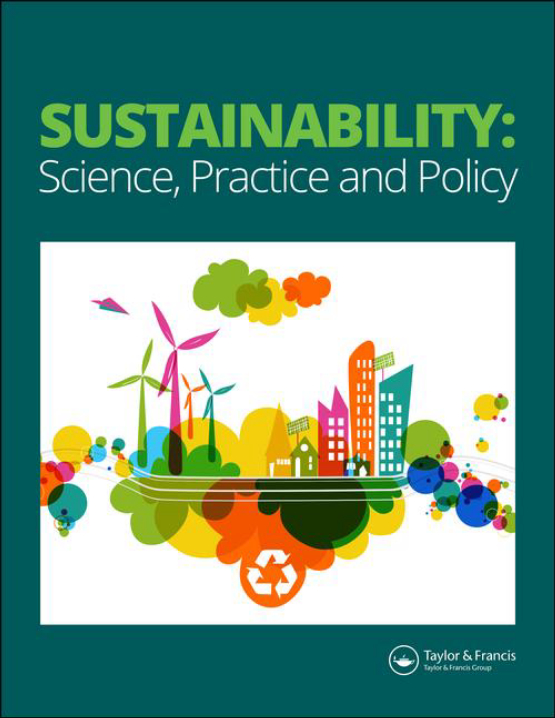Submit a Manuscript to the Journal
Sustainability: Science, Practice and Policy
For an Article Collection on
Choosing a Shared Future: Disaster Diplomacy for Sustainability, Disaster Resilience, and Peace
Manuscript deadline
30 November 2024

Article collection guest advisor(s)
Dr. Laura Peters,
Oregon State University
[email protected]
Choosing a Shared Future: Disaster Diplomacy for Sustainability, Disaster Resilience, and Peace
Disasters are not natural, but are complex social phenomena rooted in human action and inaction. Disasters disrupt sustainable development well after a hazard event subsides by rolling back hard-earned gains, destroying assets, and holding marginalized people in cycles of vulnerability and poverty. Disasters also reveal unsustainability, including forms of development that come at the exclusion and expense of some to the benefit of others. Disaster risks are political and often concentrated along socio-political fault lines, with disasters occurring disproportionately in conflict-affected contexts.
This special collection reasserts that we can prevent and mitigate disasters and build sustainable futures. We must take systematic measures to keep people safe and bridge socio-political divides in a changing world. In practice, the growing fields of disaster risk reduction and sustainable development have explored working actively on peace, including at the humanitarian-development-peacebuilding nexus. The fields of disaster diplomacy – the potential for disaster-related actions to catalyze cooperation and contribute to peace – and environmental peacebuilding – the potential to leverage concerns over environmental issues to build peace – offer integrated theories and practices. Yet, the potential for new paths to sustainability to be forged in places affected by violent conflict remains underexplored.
This special collection seeks to highlight scholarship linking sustainability with disaster risk reduction and disaster diplomacy, and related fields. Especially encouraged are submissions providing actionable evidence, including through: empirical case studies; mixed and creative methodologies; critical lenses and theories; and scholarship aligned with traditions of nonviolent resistance and social justice amidst everyday disasters and everyday peace. Also of interest are critiques, including where efforts have not improved lived realities and socio-political relationships.
Laura E. R. Peters, PhD, is an Assistant Professor of Geography at Oregon State University researching how deeply divided societies build knowledge about and act upon changes and challenges, including those related to climate change, disasters, and health. Her applied research on disaster risk reduction, disaster diplomacy, and environmental peacebuilding seeks not just to reduce and mitigate risks but also to co-develop explicit strategies that strengthen social-environmental sustainability and justice, support community and planetary health and wellbeing, and build durable peace. With fieldwork experience in the Caribbean, South Asia, sub-Saharan Africa, and the Middle East, Peters partners with global policy-makers, think tanks, practitioners, and diverse communities. Peters is an Honorary Lecturer at the Institute for Risk and Disaster Reduction at University College London, and serves as Director of Research at Stema. She earned her PhD in Geography at Oregon State University, MA in International Peace and Conflict Resolution at American University, and MA in International Development and Cooperation at Korea University.
Dr. Peters has no conflicts of interest to disclose.
Benefits of publishing open access within Taylor & Francis
Global marketing and publicity, ensuring your research reaches the people you want it to.
Article Collections bring together the latest research on hot topics from influential researchers across the globe.
Rigorous peer review for every open access article.
Rapid online publication allowing you to share your work quickly.
Looking to Publish your Research?
Find out how to publish your research open access with Taylor & Francis Group.
Choose open accessSubmission Instructions
All manuscripts submitted to this Article Collection will undergo desk assessment and peer-review as part of our standard editorial process. Guest Advisors for this collection will not be involved in peer-reviewing manuscripts unless they are an existing member of the Editorial Board. Please review the journal Aims and Scope and author submission instructions prior to submitting a manuscript.